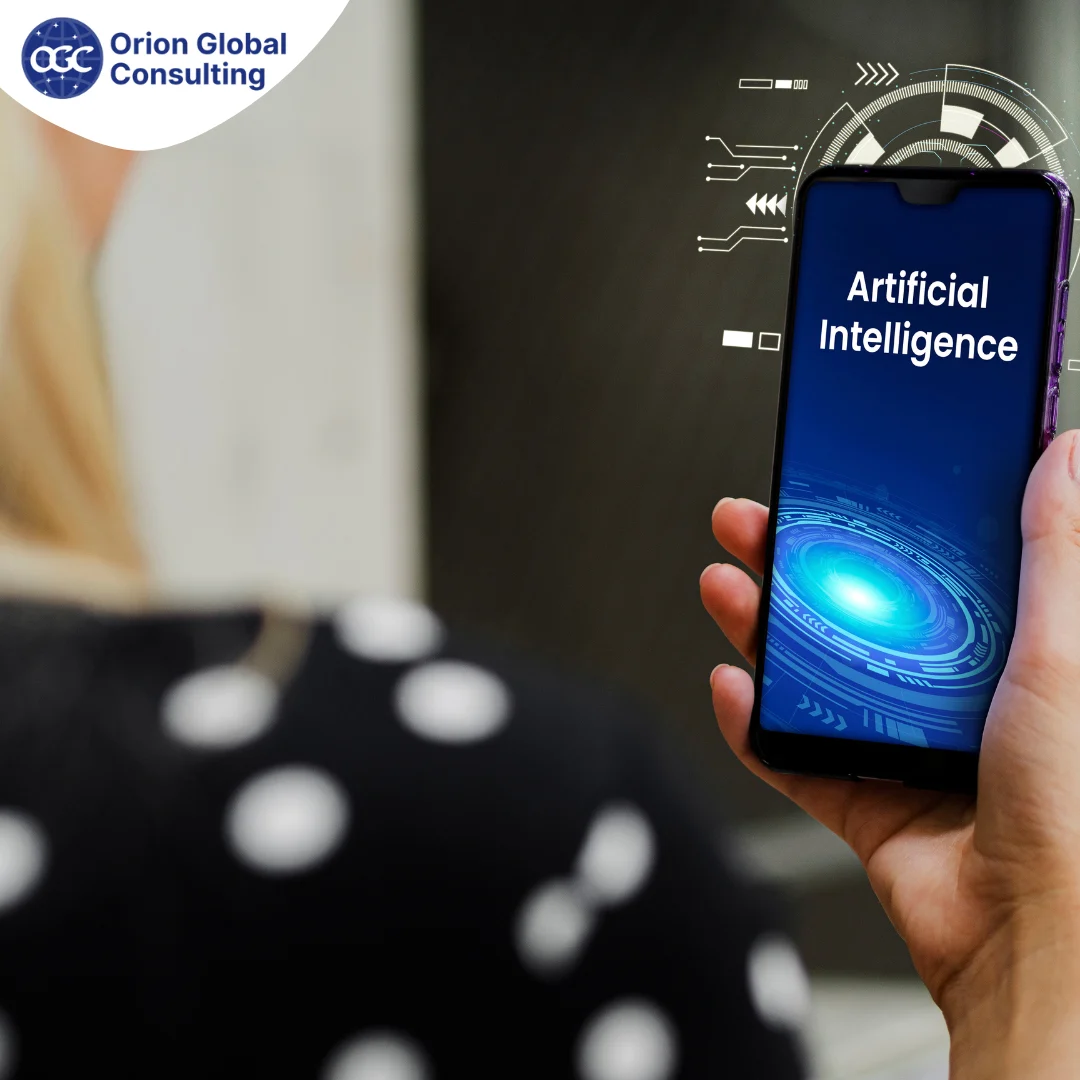
Mobile apps now play a significant role in our daily lives. We use applications to watch movies, do online shopping, book a taxi, or order food. Businesses are attempting to make their applications more intelligent and practical because users use them so frequently. This is where the development of mobile apps heavily relies on artificial intelligence (AI).
AI enables apps to learn and think like people. It is capable of real-time response, prediction, and comprehension of user behaviour. AI allows developers to make apps that improve user experience, saves time, and operate more smoothly. Let study in simple words that how AI is transforming in Mobile app development.
What Is Mobile App Development?
Developing software for mobile devices, such as smartphones and tablets, is known as mobile app development. Developers used to concentrate mostly on design and fundamental features. However, customers increasingly demand that apps be quick, smart, and customised.
AI helps developers in fulfilling these demands. It enables programs to learn from data and adjust to the demands of individual users. Apps become more dynamic and user-friendly as a result.
How AI Is Changing the Development of Mobile Apps
AI enhances and adds a lot of additional features to the app development process. Some of the primary ways it is changing things are listed below.
1. Tailored User Experience
Apps can better understand each user thanks to AI. It investigates user preferences, search terms, and app usage. It displays products or content that aligns with their preferences based on this data.
For example, Amazon suggest things according to what you have search or watched and Netflix suggest movies/series you might enjoy according to your previous watch.
2. Smarter Data-Based Predictions
AI is capable of analysing vast volumes of data and predict user behaviour. We refer to this procedure as predictive analytics.
AI can be used for shopping apps to predict which product will be bestseller and when will the customer make the next purchse. This allows companies to prepare and provide customer with what they want more.
3. Image and Voice Recognition
Apps can now comprehend voice and visuals thanks to AI. Instead of typing, users can interact with the program using voice input. Classic examples of this are Google Assistant, Alexa and Siri.
Apps that use image popularity are able to recognize faces, gadgets and even emotions in photos. Apps like Instagram and Google Photos use this to robotically tag pix. Apps grow to be less difficult and greater exciting to apply due to these capabilities.
4. Chatbots and virtual helpers
These days, a lot of apps have chatbots or virtual assistants to assist users around the clock. Instantaneous product recommendations, problem solving, and question answering are all possible with these AI solutions.
For instance, a chatbot can respond in a matter of seconds in case you use a buying app and enquire approximately the status of your order. This enhances customer service and saves time for both clients and corporations.
5. Automating Maintenance and Testing
A significant part of mobile app development invovles testing. Before launching a application, developers must examine any faults or defects. AI tool speed up the accuracy and also imporves the process.
AI is even capable of automativally identifying problems and also offers fixing it at time. Additionally, it can predict any issues in the future and track the apps performance after it being launched. This brings smoothly application work and minimise downtime.
6. Enhanced Safety
Mobile apps, specifically the ones that process payments or personal informations must be extremely secure. AI helps apps make more secure by noticing any odd activities like hacking or fraud attempts.
Furthermore, it allows for biometric security features such as fingerprint scanning and facial recognition. These AI-powered technologies keep user data safe and provide an extra layer of security.
7. Smarter Marketing and Recommendation
AI additionally makes it easier for groups to put it up for sale their apps. It analyses user behaviour to supply offers or notifications at the best second.
For example, you would possibly receive a lunch discount from a food transport provider right whilst you usually area an order. Sales and user engagement both rise with this type of astute marketing.
8. Increased User Involvement
Apps become more engaging to use thanks to AI. It can design elements that change according on the user’s behaviours, preferences, or mood.
For example, learning apps can recommend classes based on your success, while fitness apps can use AI to create customized exercise programs. This encourages users to stay engaged with the software and maintains their interest.
Examples of AI in Mobile Apps in Real Life
Numerous well-known mobile apps that you use on a daily basis already incorporate AI. Here are few instances:
- Netflix: With the help of AI, Netflix suggest you movies based on your recent watch
- Spotify: According to your song preference, they provide music you might enjoy.
- Amazon: Recommends products and predicts what consumers might buy next.
- Google Maps: To provide route and real time traffic details.
- Instagram: Uses AI to recognize faces, remove spam and recommend interesting content.
These images illustrate how AI improves the usability and customization of programs.
Benefits of Using AI in Mobile App Development
AI offers many benefits to both developers and users. Some of the more important ones are:
- Personalization: Everyone has different things to say according to your preference.
- Efficiency: AI automates many processes, saving time and effort.
- Better decisions: AI data analytics enables businesses to make more informed decisions.
- Strong security: Artificial intelligence detects and stops attacks faster than manual methods.
- User retention: AI keeps users interested by offering what they like best.
Challenges of Using AI in Mobile App Development
While AI has many advantages, but everything comes with obstacles.
- Data Privacy: For proper function, AI need user data but the most important part is to secure that data.
- Difficulties: Creating AI-based features needs both technical expertise and time.
- Cost: Developing or maintaining any AI apps can be very expensive.
- Continuous Updates: AI systems must be update after 1-2 months for right working.
Even with these problems, most of the businesses say that AI benefits out grows any high cost.
The Future of AI in Mobile App Development
At many degrees, the destiny will keep to depend on artificial intelligence. In upcoming years, we will see apps which can recognize feelings and provide real existence solutions.
AI may even collaborate with different growing technologies like IoT, AR, and VR. These apps collectively will make technologies with a view to make apps and interactions extra actual
Mobile apps will soon be expecting what customers want earlier than they ask for it, in preference to really responding to what they do.
Read this blog as well: https://orionglobalconsulting.co.uk/the-future-of-mobile-application-development-in-2026/
Conclusion
Mobile app development is going through a big change because of Artificial Intelligence. AI helps developers in making smarter, safer and customise programs. Its becoming a crucial part for all apps from enhancing user experience and security to guessing the future trends
Using AI helps companies remain one step ahead of the competition. It means users can enjoy programs that genuinely fulfil their needs.
In simple words, AI increases the intelligence, speed and usage of mobile apps. This is the future and the present.


